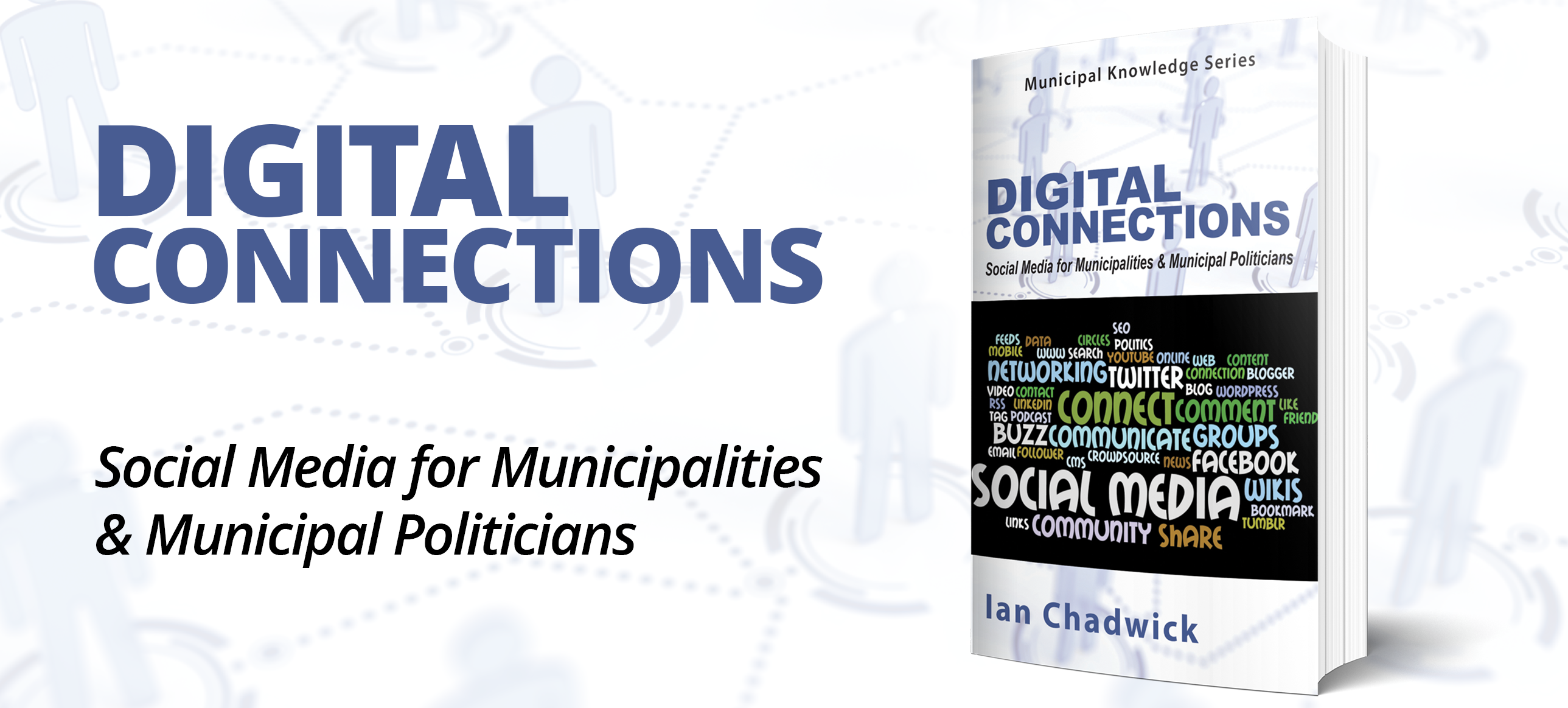10 election season tips for municipal clerks and communicators

For many communities across the country this year … It’s election season! Potential municipal candidates have already begun to show their faces and raise their voices, in preparation for this fall. For municipal clerks and communications staff, it won’t be a dull season. The landscape has shifted, and many clerks are navigating change, facing some tough questions, setting boundaries for staff, and may soon be struggling to facilitate candidate campaigning appropriately and impartially. We’ve got some tips to help, but first, let’s set the stage for what we see happening in municipalities across Canada: 2018 looks a lot different from 2014.
The Current Climate – Generally Speaking
What is happening broadly can have a big impact on what is happening in the minds, perceptions, and behaviours of those in your community. To begin with, the Cambridge Analytica/Facebook scandal, the #MeToo movement, fake news, and the rise of conspiracy theories are making people question the information they receive and who it’s coming from. There is greater mistrust in government and its leaders as well.
Related to elections, people wonder about the technology being used: not just internet voting technology, but also voter registration and vote-counting and tabulation systems. We saw this in New Brunswick1 in their last election, Calgary2 last October, and of course, during the Ontario Conservative Leadership race3 in March. These stories can impact how secure the public feels when being asked to use technology during a time when privacy, security, and accuracy are paramount to having a clean and reliable election result.
Shrinking newsrooms and shattered newspapers have coincided with the rise of independent bloggers/influencers, and an environment where social media gives everyone a voice without filter. More than ever, individuals can filter out the news they receive to be in alignment with their own personal views, missing out on broader perspectives that may challenge or make them think more critically about their beliefs. The data we post online also gets used to target specific ads and information to us; and, of course, as social media has become more mainstream in our everyday lives, candidates have platforms to reach a wider audience, share their opinions, and engage their constituents like never before.
There are pros and cons with each of the above. Clerks and communicators simply need to be aware of this current climate as they develop their plans and messaging in their communities and leverage the opportunities that exist.
Brave New World of Alternative Voting Options
More and more clerks have gone before their councils to get approval to implement alternative voting solutions – usually aimed to increase voter turnout, reduce the demand on municipal staff and the number of resources needed, and make the voting process easier and more accessible for all eligible voters. Internet and telephone voting are being introduced or more heavily relied on in municipalities across the province. However, with that comes added pressure to ensure election integrity, face skepticism, and guide residents through change.
Many municipalities plan to use the same company that managed the Ontario Conservative leadership race. More than one clerk has had to defend that choice to their council.
And, changing voting procedures can also shake up a community. Most humans resist change and dislike the confusion or uncertainty that comes with it. So, if you are introducing changes, get ready for increased calls and complaints. Do everything you can to make it easy for voters.
Also, get ready for technical glitches. They are possible and they are a nightmare. They usually happen at the worst time (despite all previous testing) and you never know how long it will take to find the solution and get back up and running. Assume it’s going to happen and be ready.
All’s Fair in Love, War … and Twitter
Redbrick’s Annual Municipal Social Media Survey4 shows that more and more of Ontario’s heads of council have taken to social media. In 2017, 27 percent had a presence somewhere: 81 percent on Twitter and 55 percent on Facebook. (Unfortunately, we didn’t have the resources to research the thousands of councillors in the province’s 444 municipalities.)
How these wardens, reeves, mayors, and chairs are using social media varies, especially if staff are supporting them on their channels. During election time, activity tends to increase dramatically.
We’ve seen candidates show up during emergency situations and start tweeting out information that may or may not be in line with what the municipality is trying to convey to residents. We’ve seen them bring their own silver shovel to ground breakings they weren’t invited to. We’ve seen them put individual municipal staff on the spot by tweeting at them for answers on specific projects. And more.
Most candidates understand the power of social media, and during a campaign, the gloves come off. So, while it’s not a clerk’s nor communications person’s job to control a candidate’s social media presence, it’s important to be aware of what’s going on to manage boundaries where appropriate.
10 Tips on How to Be Ready
Now to the good stuff! There are a number of things staff can do to protect themselves, prepare for potential issues, and guide candidates toward a fair election.
1. Set clear guidelines for staff
During the election period, staff need clear protocols to guide and support how they interact with current elected officials and candidates. They need to know who to call if they are unsure and understand what is acceptable.
A municipality’s Use of Corporate Resources During an Election policy is going to be your best friend. Some clerks are ahead of the game and have updated their policies from 2014. Some are still working at it. It’s important they include areas such as the use of the corporate logo and photos/video, staff time/volunteering, how councillor web and social media links will be handled, use of technology and municipal property, and use of corporate media lists or other distribution lists. You can find samples on the resources page.5

We recommend all staff receive the policy, and for those who interact with councillors on a regular basis, further follow up and training is given. The green light, yellow light, red light guide as seen above can be a good way to help staff understand the boundaries. Give them some examples of what they might encounter and then put it in the red, yellow, or green light category in terms of the appropriate response.
2. Plan ahead
Benjamin Franklin said, “By failing to prepare, you are preparing to fail.” Prepare an elections plan and work with key staff who will be impacted. Know what you will measure as success. This is a critical time when you want to ensure that voters know that, regardless of the voting methods being used in your community, no one will be turned away. Have key messages ready in plain language, and share them so others can speak with a consistent voice. Prepare spokespeople to be ready to answer questions. Use third-party vendors to answer specific questions as needed. Expect the unexpected.
3. Arm customer service staff
Customer service staff, if you have them, will be your number one allies during election season. They can help residents register to vote, guide them through the voting process itself, and direct candidates as appropriate. Be sure to include them in your planning efforts and give them all the Q&As they need to get the job done.
4. Make it as easy as possible for voters
Use lots of visuals and plain language in your communications to voters. Video can also be powerful if you have the resources. If you’re introducing online voting or anything else new, get out in the community. Show them how it works. Make it easy for them to interact with it. Use your website to show step-by-step processes as needed.
Remember, during this time it is critical that any barriers to voting are removed to the best of your ability. The last story you want in the media is about someone in your community saying they couldn’t exercise their democratic right. So, find a way to ensure all voters have confidence that they know how to cast their vote. You may even need to have someone on staff go out of their way to arrange a carpool to the library for those who need internet access to vote. Do what you need to do.
5. If something goes wrong – and it will – pause and assess before you react
When an issue arises, it’s important to think about damage assessment. Sometimes an issue that seems big in the moment will fade in a few hours and doesn’t need a grand response (which might only serve to fuel the fire). Take a deep breath.
Thinking first is good. Jumping first can be bad. Assess the situation and react accordingly. Consider if there will be long-term harm. Consider if it can be turned into a positive. Consider if it’s a battle you even need to win.
6. Consider implementing a blackout period for events and speaking engagements for current officials
Many municipalities stop or change how they promote and run municipal events the 30 to 45 days before election day. This takes a lot of pressure off staff and helps limit the number of issues of having to manage candidates’ behaviour. Communications staff who write speeches for heads of council or councillors, or who post social media content on their behalf, should also stop that support until that person is officially re-elected.
7. Promote the full 10-day voting period to take pressure off “voting day”
Election day is busy and important, and clerks’ offices will need all the support they can get. To help manage, many municipalities are planning to promote the voting period (e.g., the 10 days of voting) this time around, and putting less emphasis on the actual voting day. With advanced voting options and the use of internet voting, they hope more voters will be proactive – voting early and lessening activity on the actual day. That said, many of us are last-minute voters, so human nature may win out despite best efforts.
8. Help candidates help you
Candidates are out and about talking to your audience throughout the election time. So, even though they are individually motivated, they can be used to help get out key messages about how, where, and when to vote. Make the most of their profile and networks. Give them sample registration cards, or PIN letters to show constituents. They will be willing!
9. Media train clerks (and any other possible spokespeople)
Most clerks are used to handling touchy questions by council. They face it on a regular basis. But, being put in front of a camera or over the radio for a live interview is a different level of intensity. You want to tell your story succinctly and with confidence. There are tricks of the trade to do it well. So, having some skills in your back pocket can help you prepare your messages well and feel in control when you’re under fire.
10. Suggest candidates develop a personal social media plan
Candidates should consider their social media use carefully. Consider adding a template to the candidate guide to help them think ahead of time about how they will be using social media during their campaign. In fact, we recommend you have one, too!6
All in all, clerks and communicators should be working together this election period. And if you’re a clerk on your own in a small municipality, use the team around you and protect yourself with strong policies and clear boundaries.
Let the excitement begin! MW
1 http://www.cbc.ca/news/canada/new-brunswick/new-brunswick-votes-2014/new-brunswick-election-software-glitch-to-blame-for-result-delays-1.2775858.
2 https://globalnews.ca/news/3804791/misinformation-a-big-problem-in-calgarys-civic-election/.
3 https://www.huffingtonpost.ca/2018/03/10/leader-ontario-pc-party_a_23382284/.
4 http://redbrick.ca/resources/.
5 Ibid.
6 Ibid.
Andrea Montgomery, APR, is a Vice President at Redbrick Communications. Before 2016, her career was in the public sector (municipally and provincially). Today, she continues to be a trusted advisor to municipal leaders and elected officials.
as published in Municipal World, June 2018



